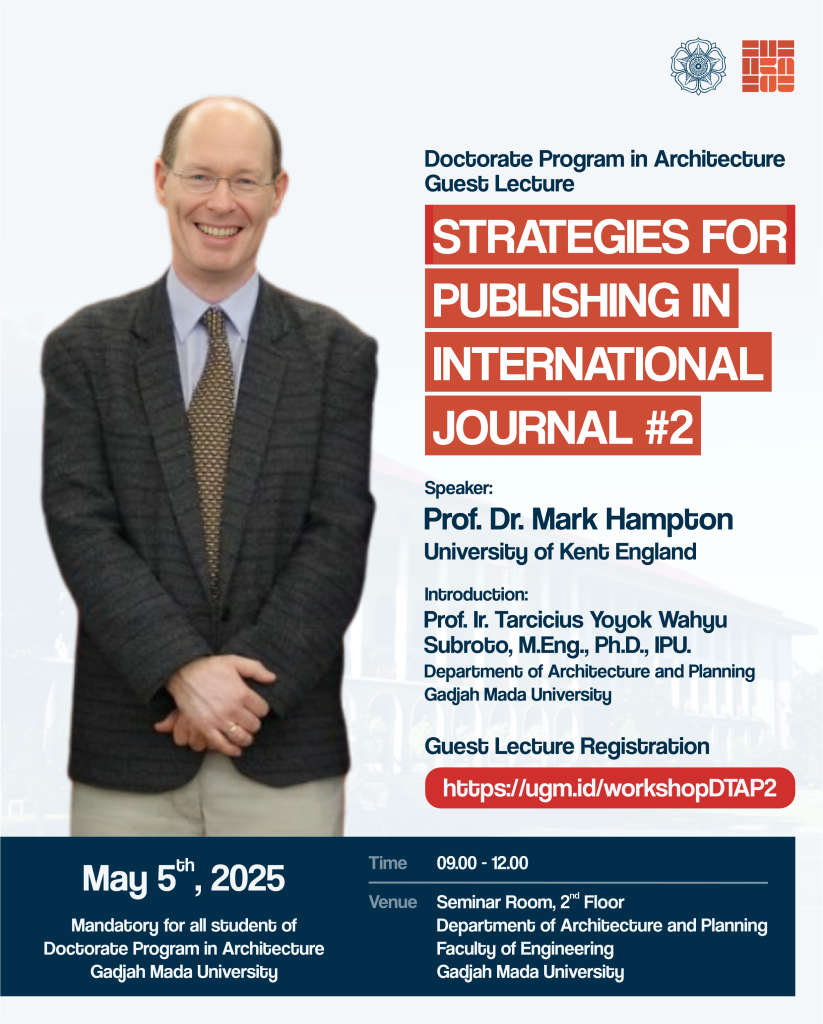The Doctoral Program in Architecture, Department of Architecture and Planning Engineering, Faculty of Engineering, Universitas Gadjah Mada, successfully organized a series of events titled Doctorate Program in Architecture Guest Lecture & Workshop: Strategies for Publishing in International Journal #2. The event featured Prof. Dr. Mark Hampton, a senior lecturer at the University of Kent, United Kingdom. This event series was held on Monday and Tuesday, May 5–6, 2025, in a hybrid format offline at the Seminar Room, 2nd Floor of DTAP FT UGM, and online via Zoom Meeting Room and was attended by doctoral students of the Architecture Study Program.
The first day of the event (Monday, May 5, 2025) began with the singing of the national anthem Indonesia Raya and the Gadjah Mada Hymn, followed by a guest lecture by Prof. Dr. Mark Hampton on Strategies for Publishing in International Journal #2, which included a Q&A session. The lecture concluded with closing remarks by Prof. Ir. Tarcicius Yoyok Wahyu Subroto, M.Eng., Ph.D., IPU., representing the doctoral program faculty, followed by the presentation of a certificate and souvenir to the speaker, and a group photo session. The event then continued with a workshop on writing manuscripts for international journals. During this session, several doctoral students of the Architecture Program presented their manuscript drafts, which were then reviewed and discussed by Prof. Dr. Mark Hampton. The workshop continued into the second day (Tuesday, May 6, 2025) and concluded with another group photo session.
The Doctorate Program in Architecture Guest Lecture & Workshop provided significant benefits for the doctoral students of the Architecture Study Program at DTAP FT UGM—many of whom are lecturers from various universities across Indonesia—particularly in enhancing academic capacity and scientific publication skills at the global level. Through this series, students gained in-depth understanding of the structure of academic writing that meets international standards, techniques for constructing strong academic arguments, and strategies to get published in reputable journals. This not only strengthens the students’ scientific contributions in their respective fields but also promotes a culture of high-quality and impactful research. These benefits align with Sustainable Development Goal (SDG) number 4: Quality Education, by supporting the creation of a higher education environment that fosters innovative research, lifelong learning, and the improvement of lecturers and researchers for the future.






